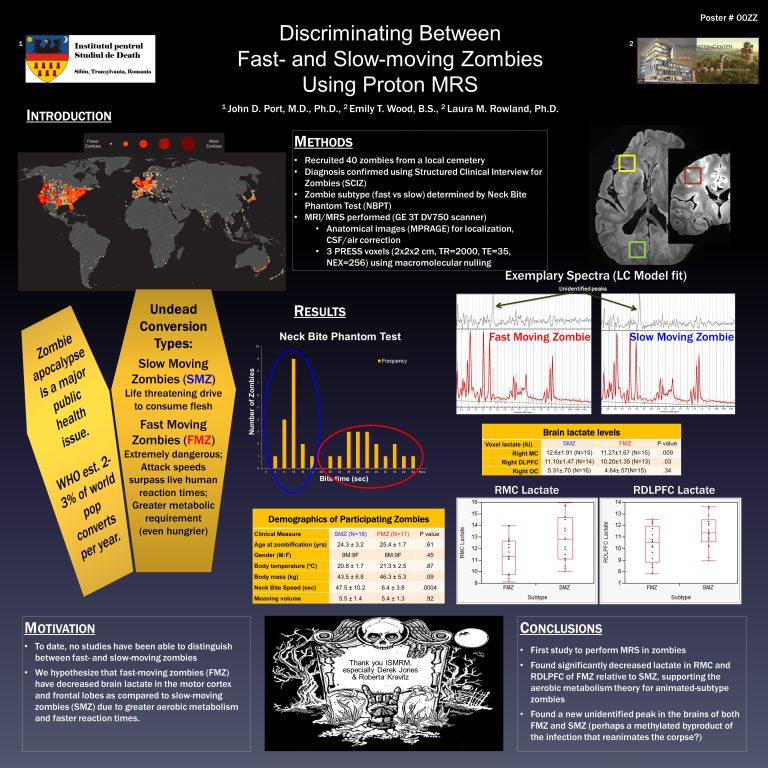Speech Therapy For Multiple Sclerosis
Are you curious about how speech therapy can help people with multiple sclerosis? Look no further, because in this article, we’ll dive into the benefits of speech therapy for individuals living with this condition.
If you or someone you know is dealing with multiple sclerosis and experiencing difficulties with speech, this article is here to shed some light on how speech therapy can make a positive impact.
So, let’s jump right in and explore the world of speech therapy for multiple sclerosis!

Speech Therapy for Multiple Sclerosis: Improving Communication and Quality of Life
Multiple sclerosis (MS) is a chronic neurological disease that affects the central nervous system, causing a wide range of symptoms. One common challenge faced by individuals with MS is difficulties with speech and communication. These challenges can significantly impact daily interactions and quality of life. Luckily, speech therapy offers valuable support and strategies to help individuals with MS regain and maintain their communication skills. In this article, we will explore the importance of speech therapy for multiple sclerosis and delve into various techniques and interventions used in this specialized form of therapy.
The Role of Speech Therapy in Multiple Sclerosis
Speech therapy plays a crucial role in the management of multiple sclerosis by addressing and treating the communication difficulties that may arise. It focuses on improving speech clarity, enhancing vocal strength and control, and developing strategies to compensate for verbal and cognitive challenges. Additionally, speech therapy can aid in swallow function and addressing swallowing difficulties (dysphagia) that commonly occur in individuals with MS. The goal is to maximize individual communication abilities and overall quality of life.
1. Evaluating Speech and Communication Skills
During the initial assessment, a speech-language pathologist (SLP) will evaluate the individual’s speech and communication abilities. This assessment may include evaluating speech clarity, articulation, voice quality, fluency, and language skills. The SLP will also assess cognitive abilities, as MS can affect cognitive function, including memory, attention, and problem-solving skills. This comprehensive evaluation allows the SLP to develop a personalized treatment plan tailored to the individual’s specific needs.
In some cases, the SLP may use additional assessments, such as swallowing evaluations, to identify any potential swallowing difficulties. Dysphagia can result from weakened muscles involved in swallowing, leading to choking or aspiration. Identifying and addressing these challenges early on is crucial in maintaining optimal nutrition and preventing aspiration pneumonia.
Overall, the evaluation process is essential in determining how speech therapy can address specific challenges and tailor interventions to improve communication abilities.
2. Techniques and Interventions in Speech Therapy for MS
Speech therapy for multiple sclerosis utilizes various techniques and interventions to address specific communication challenges. These techniques may include:
- Articulation exercises: By practicing specific movements and exercises, individuals with MS can improve speech clarity by targeting specific speech sounds.
- Vocal strengthening exercises: Weakness in the muscles responsible for producing sound can affect voice quality. Vocal strengthening exercises can help improve vocal control and strength.
- Fluency techniques: For individuals experiencing difficulties with speech fluency, such as stuttering or hesitations, speech therapy can teach techniques to enhance fluency and natural flow of speech.
- AAC (Augmentative and Alternative Communication): In cases where speech becomes severely impaired or lost, the use of alternative communication methods, such as communication devices or sign language, can be introduced and taught by the SLP.
Moreover, cognitive-communication interventions may be incorporated to address memory, attention, and problem-solving difficulties. These interventions involve strategies and exercises to improve cognitive function related to communication.
It is important to note that speech therapy for multiple sclerosis is highly personalized and tailored to each individual’s unique needs and goals. The frequency and duration of therapy sessions may vary depending on the severity of the symptoms and the individual’s response to treatment.
3. Living Well with MS: Tips and Strategies
While speech therapy is instrumental in managing communication difficulties in multiple sclerosis, there are additional strategies that individuals with MS can incorporate into their daily lives to optimize communication:
- Pace Yourself: Take your time when speaking, allowing for pauses and breaks when needed. This can help reduce fatigue and improve overall clarity.
- Use Visual Aids: Visual aids, such as written or picture cues, can aid in comprehension and recall during conversations.
- Practice Relaxation Techniques: Techniques like deep breathing can help manage stress and improve speech fluency.
- Avoid Vocal Strain: Avoid shouting or speaking loudly, as it can strain the vocal cords. Use amplification devices if necessary.
- Join a Support Group: Connecting with others who understand the challenges of living with MS can provide emotional support and valuable tips for managing communication difficulties.
Implementing these tips and strategies, in addition to speech therapy, can empower individuals with MS to regain confidence in their communication abilities and enhance their overall well-being.
Other Supportive Measures for Individuals with MS
In addition to speech therapy, individuals with multiple sclerosis can benefit from a multidisciplinary approach to manage their symptoms and improve their quality of life. This may include:
1. Occupational Therapy (OT)
Occupational therapy focuses on helping individuals with MS maintain their independence in daily activities. OT aims to improve fine motor skills, coordination, and cognitive abilities essential for everyday tasks such as dressing, cooking, and personal hygiene. Rehabilitation strategies provided by an occupational therapist can enhance overall functionality and quality of life.
2. Physical Therapy (PT)
Physical therapy plays a vital role in managing the physical limitations caused by multiple sclerosis. PT aims to improve strength, balance, and mobility through targeted exercises, stretching, and movement techniques. Physical therapists also educate individuals on energy conservation strategies to minimize fatigue and manage pain.
3. Psychological Support and Counseling
The emotional impact of living with multiple sclerosis should not be overlooked. Psychologists or mental health professionals can provide support, counseling, and coping strategies to individuals and their families. Addressing the emotional well-being can greatly contribute to overall quality of life and the ability to manage the challenges associated with MS.
Conclusion:
Speech therapy is a valuable tool in improving communication for individuals with multiple sclerosis. By addressing speech clarity, vocal strength, and communication strategies, speech therapy can help individuals regain confidence in their ability to communicate effectively. Strategies and interventions provided by speech-language pathologists, combined with the implementation of additional tips and support, can significantly enhance the overall quality of life for individuals living with multiple sclerosis.
Key Takeaways: Speech Therapy for Multiple Sclerosis
– Speech therapy can help individuals with multiple sclerosis (MS) improve their communication skills.
– Sessions with a speech therapist can focus on exercises to strengthen speech muscles and improve clarity of speech.
– Speech therapy techniques can also address swallowing difficulties and improve overall oral function.
– It is important to start speech therapy early in MS treatment to maximize its benefits.
– Speech therapy can be tailored to the specific needs of each individual with MS, focusing on their unique symptoms and challenges.
## Frequently Asked Questions
**Introduction:** Speech therapy can be a valuable tool for individuals with multiple sclerosis (MS) who experience speech difficulties. It focuses on improving communication skills, such as speaking, swallowing, and cognitive function. Here are some frequently asked questions regarding speech therapy for multiple sclerosis.
—
### Q1: How can speech therapy help with multiple sclerosis?
A1: Speech therapy helps individuals with multiple sclerosis by targeting specific communication challenges that may arise due to the condition. It focuses on improving speech clarity, voice control, swallowing difficulties, and enhancing cognitive skills related to language and communication. Through a variety of exercises and techniques, speech therapists work to strengthen muscles involved in speech production, improve breath control, and enhance overall communication abilities. By addressing these challenges, speech therapy can empower individuals with MS to communicate more effectively and confidently in their daily lives.
In addition to physical techniques, speech therapy often incorporates other strategies, such as assistive devices and communication aids, to support individuals in their communication efforts. These may include technologies like augmentative and alternative communication devices, which help individuals with speech difficulties express themselves through alternative means like visual aids or electronic devices. Overall, speech therapy plays a vital role in addressing the communication challenges experienced by individuals with multiple sclerosis, helping them regain and improve their ability to express themselves clearly.
### Q2: What specific speech difficulties can occur with multiple sclerosis?
A2: Multiple sclerosis can lead to various speech difficulties, depending on the location and extent of the neurological damage. Common speech problems experienced by individuals with MS include slurred or slowed speech, reduced vocal volume, changes in voice quality (such as a nasal or breathy voice), difficulty with articulation (pronouncing words clearly), and challenges with swallowing or excessive saliva production.
Furthermore, some individuals with MS may also experience cognitive difficulties related to communication. These can include problems with word finding, memory recall, understanding and following conversations, and maintaining attention during communication. Speech therapy aims to address these specific speech and cognitive challenges by providing targeted exercises, strategies, and techniques to improve speech production, voice control, and overall communication skills.
It’s important to note that every individual with MS may experience different speech difficulties, so the speech therapy approach will be tailored to each person’s specific needs and goals.
Summary
If you have multiple sclerosis (MS), speech therapy can help improve your ability to communicate. Speech therapists can teach you exercises to strengthen your facial muscles and improve your voice quality. They can also help you with strategies to manage difficult speech situations and overcome challenges caused by MS.
In addition to working on speech, speech therapy for MS may also address swallowing difficulties. Speech therapists can recommend exercises and techniques to improve your swallowing function and reduce the risk of choking. With the help of speech therapy, individuals with MS can enhance their communication skills and maintain a better quality of life.


